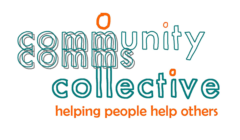With spell checkers there is little excuse for spelling mistakes. However, typos that create correctly spelled words (such as there and their) will slip through, which is why proofing documents is essential.
Many words are confused for each other and used incorrectly. Here are some common examples.
| Word | Commonly confused with |
|---|---|
| Advice: An instruction or recommendation | Advise: To tell, inform, instruct |
| Accept: To receive; to accommodate | Except: Other than |
| Affect: To change or alter | Effect: The result or consequence |
| Allude: To refer indirectly or casually | Elude: To avoid or escape |
| Allusion: An indirect or casual reference | Illusion: A false idea or image |
| Already: Previously occurred | All ready: Completely prepared, ready to go |
| Alternate: To go back and forth, every second item | Alternative: Other |
| Altogether: Completely, entirely | All together: Everyone or everything in total, or in one place |
| Among / Amongst: Being within more than two things | Between: Being within two things |
| Amoral: Not subject to or lacking moral distinctions | Immoral: Violating conscience or public morality |
| Ante-: A prefix meaning before, in front of | Anti-: A prefix meaning against, hostile to |
| Assume: To suppose, to undertake or receive | Presume: To dare |
| Asterisk: A star shaped symbol, found above the ‘8’ on a standard keyboard (*) | Asterix: A comic strip Gaul |
| Beside: Next to | Besides: In addition to, other than, moreover |
| Brought: Carried in, to bring | Bought: Purchased, to buy |
| Can: Is able to | May: Is allowed or permitted to |
| Choose: Select | Chose: The past tense of 'choose' |
| Climactic: A high point, pinnacle | Climatic: The weather |
| Complement: To complete, to match or make perfect | Compliment: To praise |
| Continually: Repetitively | Continuously: Incessantly, never stopping |
| Desert: To leave, to abandon - a large arid area (the Sahara!) | Dessert: Pudding |
| Discreet: Tactful, prudent | Discrete: Distinct, separate to |
| Dissent: Disagree | Descent: To go down |
| Disinterested: Impartial, objective | Uninterested: Lacking interest |
| Draw: Pull, mark with a pencil | Drawer: A receptacle |
| Emigrate: To depart permanently from a country | Immigrate: To relocate permanently to a country |
| Economic: Relating to the economy | Economical: Thifty, not wasteful |
| e.g.: For example | i.e.: That is |
| Elicit: To bring forth, to draw out a response or information | Illicit: Illegal |
| Ensure: To make certain | Insure: To indemnify by contract against loss or harm |
| Everyday: Normal, ordinary | Every day: Happening on a daily basis |
| Farther: A physical distance | Further: In addition, more (time or quantity) |
| Imply: To suggest or indicate without actually saying so | Infer: To deduce from the evidence at hand |
| Irritate: To cause an new annoyance | Aggravate: To increase an existing annoyance |
| It’s: It is, it has | Its: Belonging to it |
| Less: Not as much | Fewer: Not as many |
| Past: Already happened, previous | Passed: Overtook, went by |
| Personal: Of or by an individual | Personnel: workforce |
| Prescribe: To instruct or order (in writing) | Proscribe: To prohibit or advise against |
| Principal: Leading, chief, most important | Principle: A rule, a standard, a guideline |
| Stationary: Still, unmoving | Stationery: Writing materials |
| Tack: Direction | Tact: Subtlety, knowing what is appropriate |
| There: In or at a place or point | Their: Belongs to them |
| Who's: Who is | Whose: Belongs to the person |
| You're: You are | Your: Belongs to you |
Back to Writing Skills
